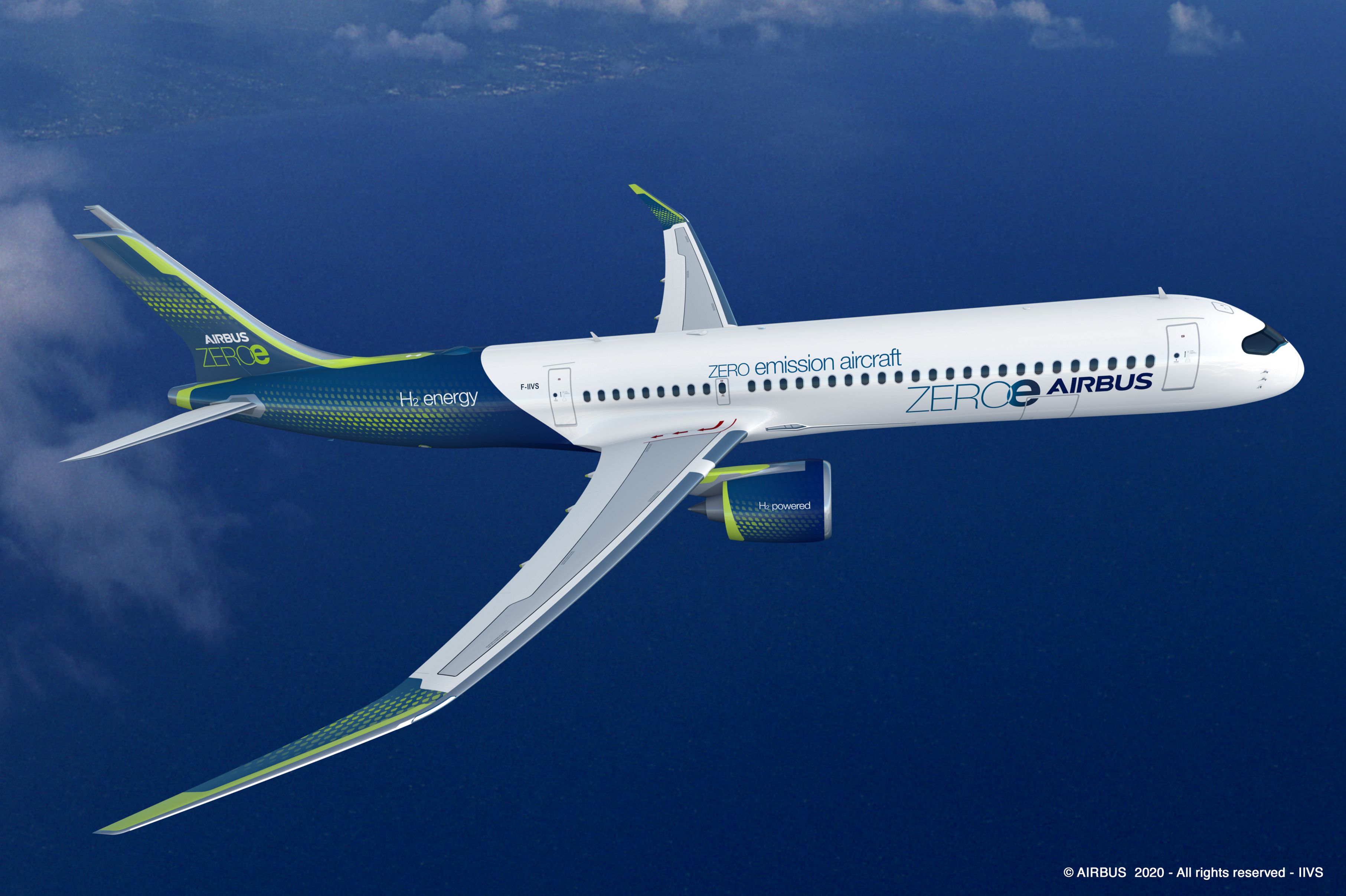Click Here to View This Page on Production Frontend
Click Here to Export Node Content
Click Here to View Printer-Friendly Version (Raw Backend)
Note: front-end display has links to styled print versions.
Content Node ID: 418901
Despite a steep dip in revenues and little prospect of a meaningful recovery in its core air transport market, Airbus remains committed to its goal of bringing a hydrogen-powered airliner into commercial service. At a February 18 press conference to announce predictably downbeat year-end results for 2020, the European aerospace group’s CEO Guillaume Faury said it is working with a five-year timeframe to mature the technologies to support this plan.
Reporters quizzed Faury as to why Airbus is prioritizing hydrogen in its plans to improve the environmental sustainability of aviation when Boeing appears to view this as a distant prospect that is decades away from reality. “We must be careful with the ‘this will never work’ attitude, which has already proven to be wrong in so many industries,” Faury responded. “Fly-by-wire [flight controls] were seen as too risky 30 years ago and today you are not a serious company without this technology. If you can’t forecast the future you need to shape it. Hydrogen has great potential; it will come and we want to be at the forefront of it.”
In September 2020, Airbus revealed that it is working on three possible concepts for hydrogen airliners under a program called ZeroE. The France-based group later unveiled a fourth concept that would feature eight-bladed “pod” propulsion units on the wing. It is aiming to have a production aircraft certified by 2035.
According to Faury, the fact that the new aircraft's airframe and propulsion architectures will be very different from those employed by its existing jetliners means that Airbus will likely need to work with new partners and suppliers. But he emphasized that the airframer intends to keep the overall design, systems integration, and manufacturing roles in-house.
“There are lots of challenges and we are not betting everything on hydrogen,” he concluded. “There are challenges with hydrogen itself, with the aircraft, with the energy supply and distribution, and with the regulations, but with partners, we can do this.”
Airbus also has indicated that it may seek to power its future helicopters with hydrogen, even as it continues to work on the all-electric CityAirbus eVTOL technology demonstrator. Earlier this month, the company joined with Air France-KLM, the ADP airports group, and local economic development agencies to begin work establishing hydrogen hubs at Paris airports. The partners have called for expressions of interest from specialist companies that can contribute to the project.
In 2020, Airbus spent €2.9 billion ($3.5 billion) on research and development, which represented a 15 percent reduction from its 2019 budget.
